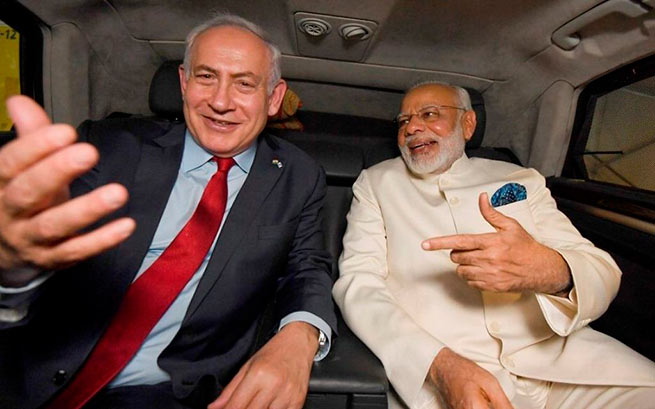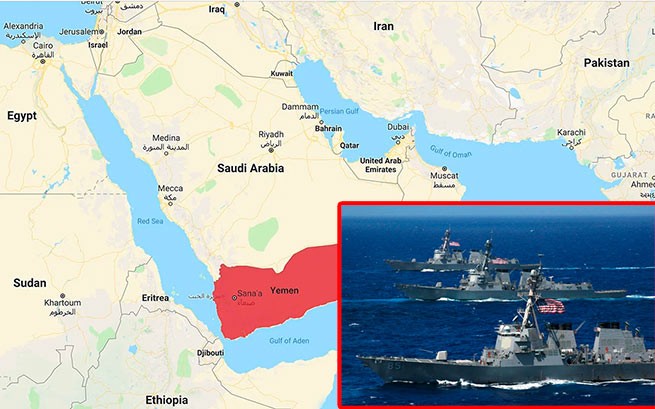US attempts to form an alliance for operations against the Houthis are encountering resistance from some NATO allies. However, Greece is in the forefront, despite the fact that this could pose a great danger to the country’s merchant fleet.
On Monday, December 18, the US Secretary of Defense announced the creation coalition of 10 countries in the Red Sea to combat repeated attacks by Yemeni Shiite rebels on ships they claim are “linked” to Israel.
The wide region from the Red Sea to the Indian Ocean is an area of intense geopolitical competition. This is understandable, since much of the world’s trade passes through this region, and there are a number of critical choke points of great strategic importance. This is also evidenced by the number of powers that maintain their bases there. Suffice it to remember that Italy, China, France, Japan and the United States have bases only in strategically important Djibouti, and Russia has long been trying to create a base in Sudan.
This explains why the US is very concerned about the actions of Yemen’s Houthi rebels, who have demonstrated the ability to attack passing ships. This is because their actions add to the concerns that the presence of the Chinese and Russians in the region is causing anyway.
https://rua.gr/news/european-news/59556-tanker-v-krasnom-more-podvergsya-atake-krylatoj-rakety.html
This is also a concern in Israel. This is due not only to the fact that the Houthis, who now exercise state power over large parts of Yemen, have expressed their solidarity with the Palestinians, but also because their presence in Yemen threatens Israel’s special plans in the region. This mainly concerns the threat to the Israeli plan to control the Red Sea region through a plan to establish a base on the island of Socotra, at the sea’s outlet to the Indian Ocean.
https://rua.gr/news/gospol/59742-pravitelstvo-gretsii-otpravlyaet-voennye-korabli-v-krasnoe-more-protiv-khusitov.html
The island is the site of conflict between the Houthis and the United Arab Emirates, which occupied and annexed it because the former consider it Yemeni territory. The Israelis, for their part, would like to use any base there to house their submarines. But the Houthis also do not want Israel to have a base on the island, which they consider part of Yemeni territory.
All this may explain why the US is so insistent on creating a coalition of forces that will put the necessary military pressure on the Houthis and, perhaps, prevent the emerging correlation.
Difficulties in forming an anti-Houthi coalition
However, not everything is so simple: firstly, the countries of the region themselves, and primarily Saudi Arabia, have made it a priority to abandon the war in Yemen and the peace process, starting an official dialogue with the Houthis. Therefore, it is not easy for them to decide to participate in US military plans.
Some NATO members, notably Spain, have also said they have not yet decided to join the American initiative, despite the fact that the United States presents it primarily as an attempt to ensure clear routes for global shipping.
https://rua.gr/news/gospol/59777-kpg-na-grecheskom-fregate-v-krasnom-more-vy-vovlekaete-stranu-v-opasnye-imperialisticheskie-plany.html
Besides Spain, its dissatisfaction with the operation expressed by France, Spain and Italy, which withdrew from the American anti-Houthi operation Prosperty Guardian, refusing to transfer their warships to US command. The Netherlands, Norway and Denmark have refused to send their warships to fight the Houthis, instead sending several naval officers to the US command center in Bahrain Greece, despite the fact that it world’s largest tanker fleetdecided to send its destroyer, thereby endangering its civilian ships.

Attempt to attract India
The US also faces difficulties in using the Red Sea Quad, the strategic defense cooperation with Japan, India and Australia that it wants to gradually develop into a key frontier against China. Against this backdrop, the key is to ensure India’s compliance and participation in what could this time become a version of the “war on terror” against the Houthis.
There is pressure here both from the United States and from Israel itself, which is very interested in developing good relations with the Indian government. This is facilitated by attempts to emphasize the analogies between Zionism and “Hindutva”, “Hinduism”, which is part of the nationalist ideology of the ruling BJP party, and, obviously, investments in the rivalry between India and Muslim Pakistan.
However, it appears that for now India hasn’t decided become Israel’s key ally in the region. The country did express solidarity with Israel after the October 7 attacks, but on December 13 it was one of the countries that voted for a resolution calling for an immediate humanitarian ceasefire at the UN General Assembly.
Likewise, although India has good relations with the US, it does not share all American foreign policies. For example, India avoids participating in US-Israeli attempts to blame Iran for fueling tensions in the region. At the same time, it is clear that with regard to the Palestinian issue, the Indian government is closely monitoring the position of the Gulf countries and the resonance of this issue in a wide range of states. For this reason, it does not want to be known as a fundamentally pro-Israel country, although much of the Indian military and security establishment also views Israel as a model state. All this means that it is by no means certain that India will rush to support US plans regarding the Red Sea.







More Stories
China: highway collapse, dozens of victims and injured (video)
A terrible tragedy in Kyrgyzstan: a truck hit 29 children at a festive event (video)
A 48-year-old Ukrainian was killed in Hungary